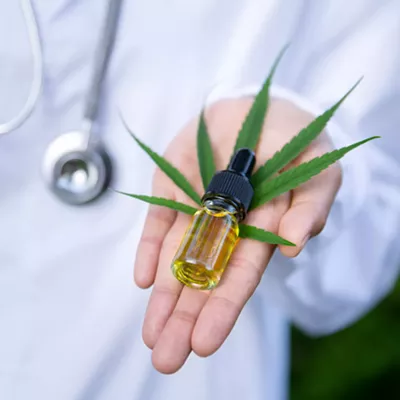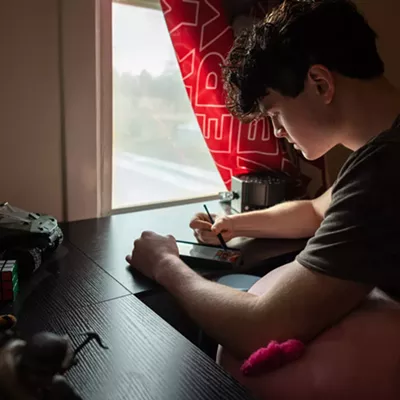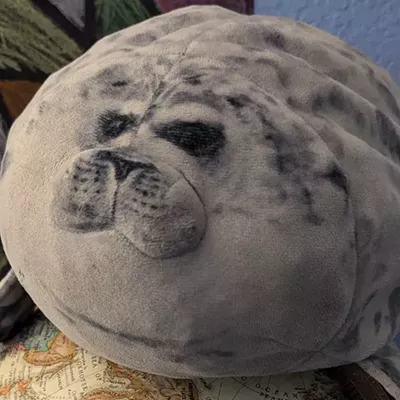Sometimes I want to forget I have a body. I used to try. I'd sink into a project or idea, my mind buzzing, my sense of the physical world dissolving into hours of working, writing, thinking, talking. I'd consider my body an exploitable shell, a useful enough host, that made its demands but was not me.
But the body has a way of making itself known.
Last spring, I got lost in thought while I was walking my dog and tripped on an uneven chunk of sidewalk. I landed on my arm, screwing up my shoulder. It's a familiar injury, starting with a fall when I was a college senior that left the campus doctor so bewildered she dragged in all of her colleagues to double-check her assessment.
"This is the kind of injury that happens to football players," she said. "Not people who trip and fall."
The orthopedic surgeon who examined my shoulder last spring raised an eyebrow when I recounted that conversation and others. The list of sprains and strains and separations, hard falls and mystery pains, that time I herniated a disk in my neck by sneezing really hard.
He asked me to lift my arms, to rotate my shoulders, to place my palms flat on the floor. He asked if I was double-jointed. (Sure.) If anyone had ever pointed out that I was, in fact, more — loose-jointed, lax-jointed, floppy-jointed. (No.)
"You have no idea what a normal body feels like," he said, and scribbled a name on a piece of paper.
A few more rounds of doctors and tests confirmed his prediction: I have hypermobile Ehlers-Danlos Syndrome, a somewhat rare genetic disorder that affects the way my body makes collagen, causing unstable joints, chronic pain and often a herd of other issues.
I've had it my whole life. Upon reflection, I realized I've had symptoms since I was a preteen, though they've grown distinctly, disruptively worse in my 30s.
But the name is new, as are all the things that come with having that name attached to my body.
It's like having the key to a code I didn't know I was misreading. Of course I hurt myself! Of course those injuries hang on for years! Even small things, like my tendency to run into walls and my extreme fear of heights, make new sense — unstable joints affect proprioception, or the body's sense of where it is in space.
It's reframing how I think and talk about myself. I've called myself clumsy, klutzy, awkward, goofy, fragile, wimpy, weak. I've berated myself for inabilities I thought I could overcome if I just tried hard enough. Pushed myself through pain because I was ashamed to admit it existed.
Tried to convince myself my body didn't matter.
So many things in this world try to tell us that different bodies, difficult bodies, vulnerable bodies don't matter.
The past 19 months have ground that fact in even harder. When a young nurse, my age, died of COVID in my community, commenters asked whether she had underlying conditions. I still think about those comments.
I'm not the only person whose body demands more than our culture wants to allow it — and especially not the only woman. Hypermobile EDS affects about three times more women than men. Similar proportions exist in other genetic and autoimmune disorders.
I've been shepherded through this experience by women who were also diagnosed with life-altering conditions in their 20s and 30s: MS, polycystic ovarian syndrome, lupus, rheumatoid arthritis, bipolar disorder, ADHD and, like me, EDS. They weren't hard to find, because they were already all around me.
The truth, as disability justice scholar Rosemarie Garland-Thompson writes, is that my experience isn't strange at all: "The fact is, most of us will move in and out of disability in our lifetimes, whether we do so through illness, an injury or merely the process of aging."
I've berated myself for inabilities I thought I could overcome if I just tried hard enough.
I don't know yet whether I want to wear my diagnosis loudly or quietly, whether I want to be an advocate or activist, whether I'll keep writing about this experience or leave it at this. I still have a lot to figure out about who and what and where I am in this new space.
But I know I'd like to forget I have a body sometimes.
Not forget that my body needs care, but care for it so well that I don't try to hide it, minimize it, belittle it. I want to strengthen it where I can, respect its limits, talk about it with kindness, treat it with grace.
I want to accept labels and diagnoses when they're helpful, and brush them off when they're not. I want to stop comparing what a "normal" body feels like and lean into feeling what I feel.
I want to forget I have a body because I get so good at remembering my body is me. ♦
Tara Roberts is a writer and college journalism adviser who lives in Moscow with her husband, sons and poodle. Her work has appeared in Moss, Hippocampus and a variety of regional publications. Follow her on Twitter @tarabethidaho.
























